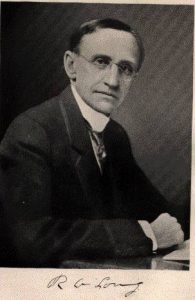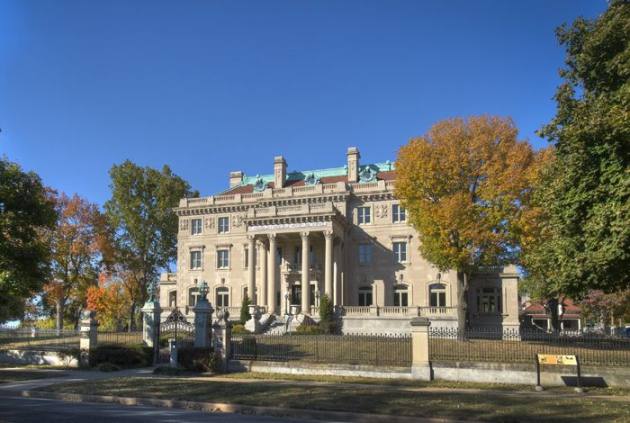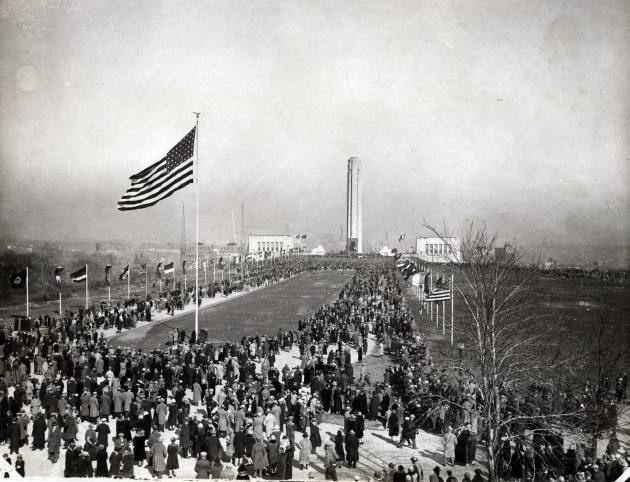Have you ever been to Longview Farm? Or visited the Kansas City Museum or the nation’s official WWI monument and museum, Liberty Memorial? Kansas City enjoys all these landmarks thanks to the generosity of Christian businessman Robert A. Long.
 Long grew up on a plantation in the South, among the rolling hills of Kentucky, in the days before the Civil War. But this plantation was different. It had no slaves. Long’s father was a devout Christian, and he firmly believed slavery was evil. He raised his son, Robert Long, to live out Christianity as a lifestyle. Throughout Long’s life, his faith impacted everything he did.
Long grew up on a plantation in the South, among the rolling hills of Kentucky, in the days before the Civil War. But this plantation was different. It had no slaves. Long’s father was a devout Christian, and he firmly believed slavery was evil. He raised his son, Robert Long, to live out Christianity as a lifestyle. Throughout Long’s life, his faith impacted everything he did.
As a young man, Long traveled west and started a lumber company in Kansas. The company exploded with success and eventually grew into a national enterprise. By the end of Long’s life, the Long-Bell Lumber Company was worth $20 million.
Long grew up in the Disciples of Christ church, and his faith influenced how he ran his company. In those days, men usually left their families to work in lumber camps, but Long wanted to keep families together. So when he built lumber camps, he built them with family housing. Similarly, when he built Longview Farm in Lee’s Summit, he provided housing for his staff that kept families together. He also cared about their spiritual growth, so he built chapels too. Longview Chapel Christian Church still continues today in Lee’s Summit.

The Robert A. Long House, “Corinthian Hall” in Kansas City, Missouri. Designed by Henry Hoit. Today, the current home of the Kansas City Museum of Science.
Long was also generous in his own church life, contributing to the construction of his home church, Independence Boulevard Christian Church. He finished the church building before he started construction on his own mansion, Corinthian Hall. Today the mansion has been turned into the Kansas City Museum in Northeast Kansas City.
READ: How a Christian family invented the Armour Hotdog and put Kansas City on the map
Long’s influence stretched wide across Kansas City. He helped build churches, served as a trustee of the Bible College of Missouri, and joined multiple Christian organizations including the American Christian Mission Society, the National Brotherhood of Disciples of Christ, Christian Board of Publication, and the Men’s and Millions Movement of the Christian Church. He also bought a publishing house that printed Christian literature.

A large crowd gathered for the dedication of the Liberty Memorial on a cold grey day on November 11, 1926. President Calvin Coolidge addressed the crowd.
But perhaps Long’s crowning glory of generosity was the Liberty Memorial, when he led the entire city to contribute toward his vision. One hundred years ago, in 1919, city leaders gathered to discuss how to commemorate the recently ended World War. Long proposed a memorial on the hill in front of Union Station. The others knew it was the right proposal. They had to do it. But Long’s idea would cost $2 million, an astronomical sum back then. They approved the idea and appointed Long as head of the project. He canvassed the city, preparing citizens for the upcoming fundraiser. In two weeks, Long raised $2.5 million, including $80,000 donated from his own fortune and company.
The Liberty Memorial Association then held a contest where architects submitted their ideas for building the memorial. They chose a winner, and construction began. In 1921, groundbreaking began, and when the memorial was completed five years later, President Calvin Coolidge attended the dedication ceremony.
The memorial includes scripture verses carved into its sides. The Architectural and Historical Research describes the scripture on the monument:
Four inscriptions are carved above the figures of the frieze, two to a side. Above the figures of the three soldiers is the following: “Behold a pale horse and his / Name that sat on him was death / And Hell followed with him” [Revelation 6:8]. The inscription above the figures of the nurse and wounded men reads: “Violence shall no more be heard / In thy land wasting nor / Destruction within thy borders” [Isaiah 60:18]. To the west of the central figure, above the two groups (moving east to west) reads the following: “What doth the lord require of thee / But to do justly and to love mercy / And to walk humbly with thy God” [Micah 6:8]. The final passage evokes a message of assurance: “Then shall the earth yield / Her increase and God / Even our own God shall bless us” [Psalm 67:6].
The memorial commemorates the end of a war, while reminding us that our true hope for peace lies in the Lord. Long’s generosity and leadership embedded Christian hope into one of the city’s most iconic landmarks. His legacy reminds us that when our faith colors everything we do, we leave behind a legacy far greater than we could imagine.
–Annika Bergen serves as director of communication for The Signatory, (thesignatry.com/KCRoots) a global Christian foundation headquartered in Kansas City. The Signatry helps families leave a lasting legacy through creative generosity. Annika and Bill High coauthored The Spiritual Roots of Kansas City: Discovering the Past to Shape Our Future.
Metro Voice is an Amazon Affiliate Learn more about the book below.
 Metro Voice News Celebrating Faith, Family & Community
Metro Voice News Celebrating Faith, Family & Community









